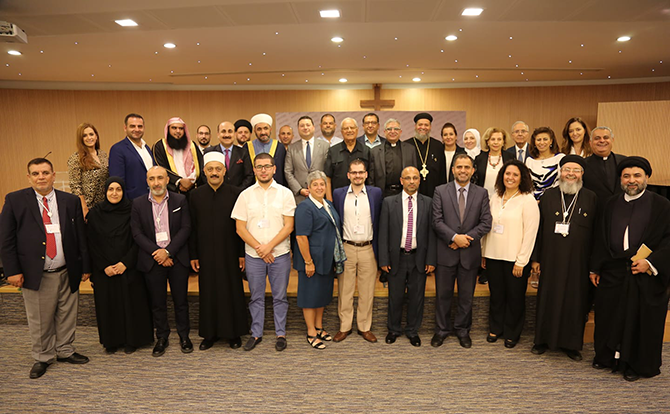A few days ago, a workshop convened in Beirut for youths from Arab countries on dialogue and accepting the others from a religious perspective. This activity is one of the first initiatives of the “Interreligious Platform for Dialogue and Cooperation in the Arab World” which was launched by King Abdullah bin Abdulaziz International Centre for Interreligious and Intercultural Dialogue (KAICIID).
The participating Arab youths, most of whom are university students, look forward to this kind of training workshops–rather than to debates and lectures—in order to acquire knowledge and training on “the art” of dialogue and acceptance of the different others, from religious or sectarian perspectives even from the same religion.
As members of the executive committee of the aforementioned Interreligious Platform for Dialogue and Cooperation in the Arab World, we participated in the closing session and listened to the youths’ impressions on the 4-day workshop. They have, for the first time, been acquainted with the culture of dialogue and with information relevant to followers of other religions, as is the case with getting identified with the religious mosaics of the in the conflagrated region and the components of the societies’ fabrics. This workshop provided an opportunity, for example, for the youths to meet with Druze religious leaders.
Among the other acquired experiences is the call to have the educational curricula include information that gets the others familiarized with what should be known on the other fraternal religion rather than what we think of what we should know about it.
The youths noted that there are several prejudices or conventional judgments which include misleading, false, or simply inaccurate or incorrect information.
At this point, the role of media–especially the modern interactive media—in fueling or alleviating the gravity of electronic conflicts emerges. These conflicts are represented in the first place in discourses of ignorance, hatred, and the desire to exclude the others, in addition to upholding critical, mistaken and destructive information.
It is nice to have this event held, namely training on dialogue, at the start of the academic year, whether it is applied to schools or to universities. Some two million students in our dear Jordanian society are back to their schools and universities. Therefore, it is our duty in the education process, which is mostly learning by rote, to show the values of accepting others, of the culture of encounter, and of abandoning the ideas relevant to excluding others.
By: Fr. Dr. Rif’at Bader
Source: abouna,org






